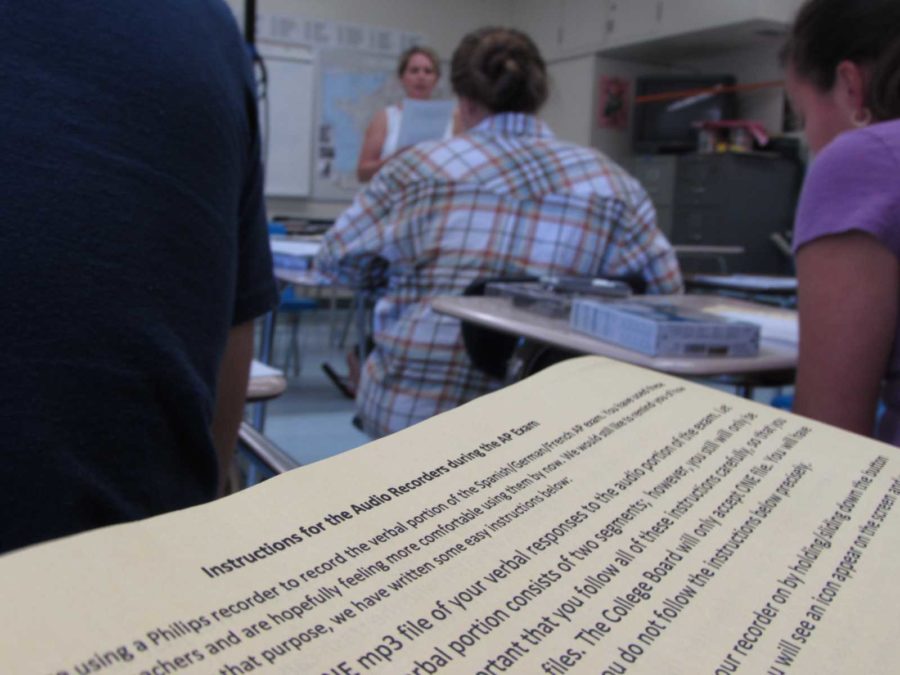AP Testing: More bucks, less bang
AP language students learn how to work the recording devices that they will use on the actual AP test
National Advanced Placement (AP) testing is here, and more students than ever are taking the tests to acquire credit for college. With this pressure, students, freshmen to seniors, will be stressing, studying, and strenuously preparing for college level classes.
Taking an AP test is relatively expensive, costing most students $95 per test. Those that qualify for free or reduced lunch may receive a discounted price at $5 per test. Despite the hefty price tag, Cam High students bought 1,350 tests this year, 297 more than last year.
“It is quite necessary to take AP classes and score well on the test to elucidate your ability to perform at a high academic level to colleges that require a higher level of academic achievement” said Jedd Lebrilla, junior.
However, some doubt the widely-accepted contention that taking AP tests will increase a student’s ability to get into a college, attributing the marketing of AP classes and AP tests towards students’ belief that taking them is required to become college-bound.
Controversies over multiple-choice tests have been raging for years. “I am not a big fan of testing to measure one’s competence or knowledge, but I do acknowledge the fact that there must be some accountability,” said Mrs. Tawney Safran, AP European History teacher. In addition to multiple choice questions, AP tests usually have a written section graded by teachers in that subject.
Some subject curriculum, such as English, are seen by teachers as simply not going in-depth enough. “The curriculum for the class is limited for a number of reasons,” said Mr. Kevin Buddhu English 4 AP teacher. “One of which is that the AP tests do not require long-term research into a paper, like college classes do.”
Aaron Talabucon, Cam High junior, stated that going to a school that does not accept college credit is not in his future plans “Would I go there? No. But if others wanted to go, it is their decision,” he said.
AP tests are designed to prove that a student has achieved a college-level proficiency in a specific subject. Scores are graded on a five-point scale, with a three being a passing grade. However, many colleges only accept fours or fives, and some don’t accept AP tests at all, such as the California Institute of Technology, indicating that the evidence showing their necessity may well be lacking.

















































































![Senior Ditch Day... Relaxation or Truancy? [Video]](https://achsstinger.com/wp-content/uploads/2017/10/IMG_7119-900x599.jpg)
![Heavy Rain Hits Cam High [video]](https://achsstinger.com/wp-content/uploads/2017/02/maxresdefault-900x506.jpg)




Dan the Man • May 11, 2015 at 3:47 pm
Nice article!